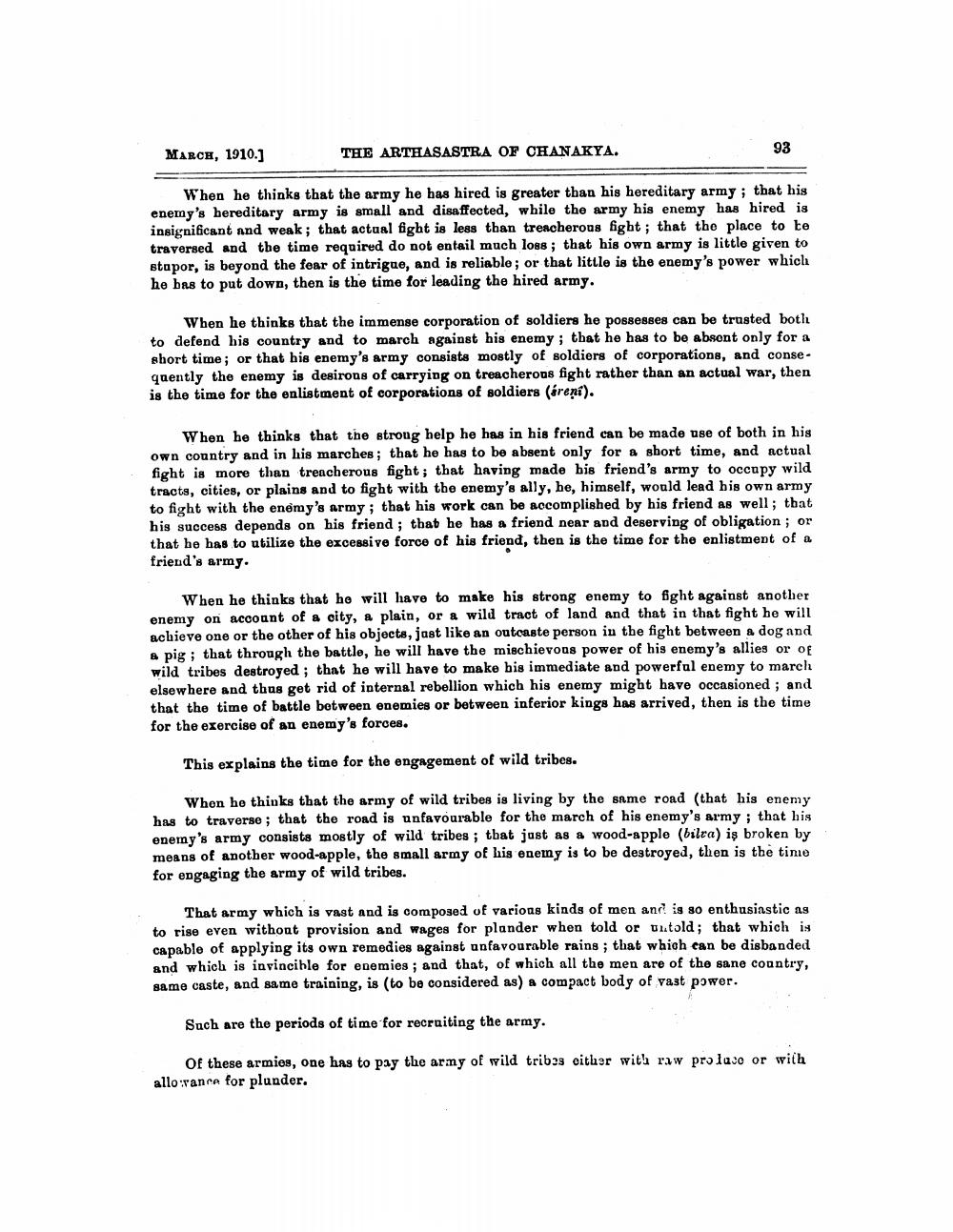________________
MARCH, 1910.)
THE ARTHASASTRA OF CHANAKYA.
93
When he thinks that the army he has hired is greater than his hereditary army; that his enemy's hereditary army is small and disaffected, while the army his enemy has hired is insignificant and weak; that actual fight is less than treacherous fight; that the place to be traversed and tbe time required do not entail much loss; that his own army is little given to stapor, is beyond the fear of intrigue, and is reliable; or that little is the enemy's power which he has to put down, then is the time for leading the hired army.
When he thinks that the immense corporation of soldiers he possesses can be trusted both to defend his country and to march against his enemy; that he has to be absent only for a short time; or that his enemy's army consists mostly of soldiers of corporations, and consequently the enemy is desirons of carrying on treacherons fight rather than an actual war, then is the time for the enlistment of corporations of soldiers (áreni).
When he thinks that the strong help he has in his friend can be made use of both in his own country and in his marches; that he has to be absent only for & short time, and actual fight is more than treacherous fight; that having made bis friend's army to occupy wild tracts, cities, or plains and to fight with the enemy's ally, he, himself, would lead his own army to fight with the enemy's army; that his work can be accomplished by his friend as well; that his success depends on his friend ; that he has a friend near and deserving of obligation; or that he has to utilize the excessive force of his friend, then is the time for the enlistment of a friend's army.
When he thinks that he will have to make his strong enemy to fight against another enemy on account of a city, a plain, or a wild tract of land and that in that fight he will achieve one or the other of his objects, jast like an outcaste person in the fight between a dog and a pig; that through the battle, he will have the mischievous power of his enemy's allies or of wild tribes destroyed ; that he will have to make his immediate and powerful enemy to march elsewhere and thus get rid of internal rebellion which his enemy might have occasioned ; and that the time of battle between enemies or between inferior kings has arrived, then is the time for the exercise of an enemy's forces.
This explains the time for the engagement of wild tribes.
When he thinks that the army of wild tribes is living by the same road (that his enemy has to traverse; that the road is unfavourable for the march of his enemy's army; that his enemy's army consists mostly of wild tribes; that just as a wood-apple (bilra) is broken by means of another wood-apple, the small army of his enemy is to be destroyed, then is the time for engaging the army of wild tribes.
That army which is vast and is composed of various kinds of men and is so enthusiastic as to rise even without provision and wages for plander when told or untold ; that which is capable of applying its own remedies against anfavourable rains; that which can be disbanded and which is invincible for enemies; and that, of which all the men are of the sane country, same caste, and same training, is (to be considered as) a compact body of vast power.
Such are the periods of time for recruiting the army.
Of these armies, one has to pay the army of wild tribus either with raw prolaze or with allowance for plunder.




